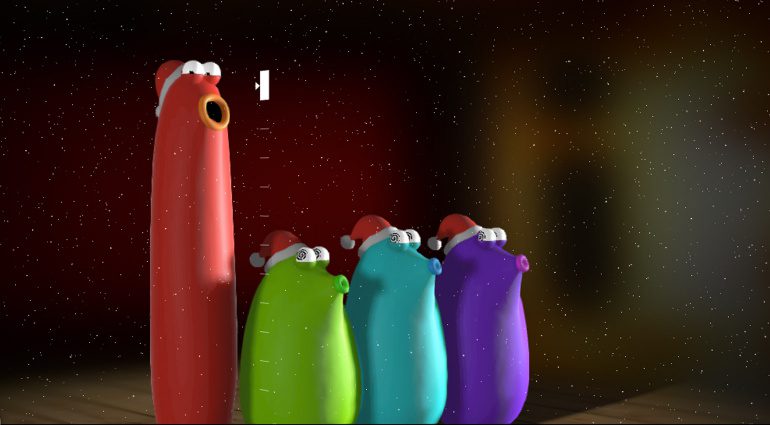

If you can't get your blobs performing the way you'd like, you can toggle a switch and listen to them singing Christmas songs like Jingle Bells and Silent Night. The machine learning-powered experiment by David Li, in collaboration with Google Arts & Culture, gives you control over four blobs that take up. What comes out of the blobs' mouths, though, is a machine learning interpretation of what opera sounds like. The blobs' voices are modeled on actual opera singers. "This experiment pays tribute to and explores the original musical instrument: the voice," Google said in a blogpost Tuesday. Using machine learning, the blobs automatically harmonize with each other, and if you like what they're signing, you can record your musical creation. With Blob Opera, you have a set of four blobs - a bass, mezzo-soprano, soprano and tenor - whose pitch and vowel sounds you can change by moving them up or down, forward or back.

Google Arts & Culture allows you to immerse yourself in culture with 360 views, zoom in to reveal the secrets of a masterpiece, take behind the scenes tours of palaces and museums, watch kids explain famous paintings to art experts, and so much more.Īrt changes the way we see the world and the way we see each other, so we invite you to come and expand your horizons with us.A quartet of opera signing blobs is at your command, courtesy of an interactive arts and culture offering from Google and artist David Li called Blob Opera. To launch the updated version, we created a performance at I/O 2021 featuring Tune.

Google Arts & Culture Discover the inspirational moments, iconic people, and artistic wonders that are available at the tip of your fingers. Blob Opera is a machine learning experiment from Google Arts and Culture. Take the blobs to cities around the world, and find inspiration in the music and landmarks of London, New York, Mexico City, Seoul, Agra, Cape Town, and Paris. Blob Opera – on tour You’ve seen the blobs do their thing at I/O, now you can take them on tour. It requires no musical skill by the user and is actually the result of a machine learning experiment by David Li (digital artist). In the experiment you don’t hear their voices, but the machine learning model’s understanding of what opera singing sounds like, based on what it learnt from them. Blob Opera is a machine learning-powered musical toy where you control a squishy operatic. Tenor, Christian Joel, bass Frederick Tong, mezzo-soprano Joanna Gamble and soprano Olivia Doutney recorded 16 hours of singing to train the algorithm.
#BLOB OPERA MACHINE LEARNING HOW TO#
No singing skills required! How it works David and team collaborated with four opera singers to teach a machine learning model how to sing. Blob Opera pays tribute to those voices, as musical instruments anyone can learn how to play. Opera singers use their voices as expressive and beautiful musical instruments. Watch Tune-Yards open I/O with Blob Opera – a musical machine learning experiment by David Li in collaboration with Google Arts and Culture. Pre-Show (Google I/O ’21) – Tune-Yards x Blob Opera

Using lasers to create the displays of science fiction If your answer is yes, ' Blob Opera ' is at your disposal You can synthesize interesting compositions with this interesting product by David Li.Pre-Show (Google I/O ’21) – Tune-Yards x Blob Opera.


 0 kommentar(er)
0 kommentar(er)
